The March of the Machines is making waves in the current Magic community. Phyrexia's plan to dominate the entire multiverse is finally in motion, and we can only wait for the epic conclusion. But where did these invaders, the Phyrexians, came from?
In this article, we'll show you some fun facts about the Phyrexians, including a bit of their origin and how their appearance has changed over the years since the first appearance of this curious race to the present day.
The Glistening Oil's origins
Ad
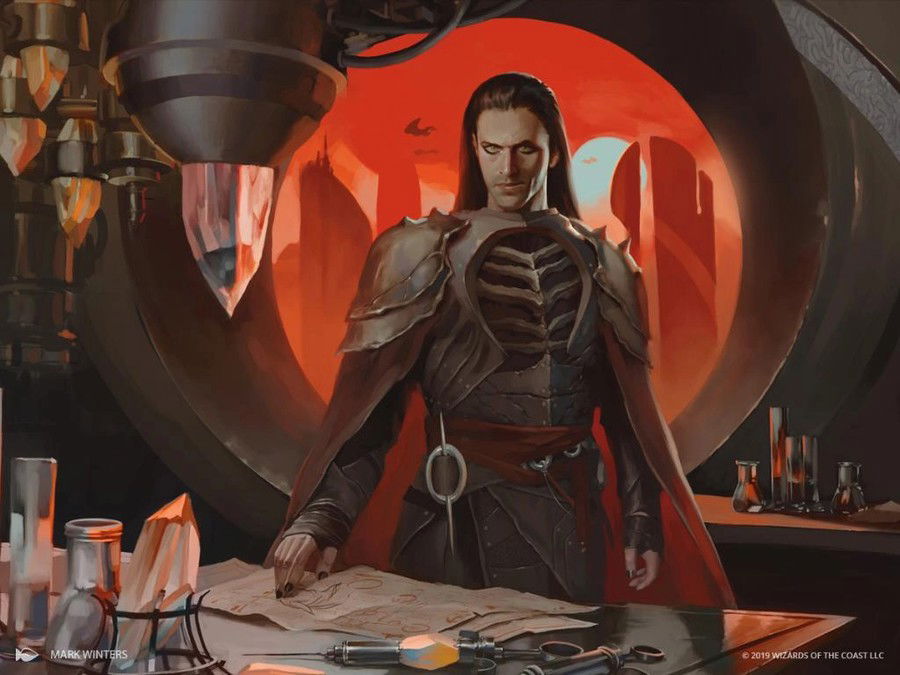
The iconic antagonist Yawgmoth, Thran Physician is responsible for the entire origin of Phyrexians. He created the so-called Glistening Oil, or Ichor, by infusing metal with the serum (see Serum Visions) in order to cure a disease caused by Powerstones, called Phthisis. But the doctor took advantage of the fact that he was the only one able to understand and unravel the disease.
After returning from exile for political reasons in Dominaria, Yawgmoth ended up gaining a great position for his title of doctor, and had control over the public health laws of the Thran Empire, and then managed to control who had the disease and who did not.
Yawgmoth called the healing process Phyresis, but in fact this was the process we know today also as compleation. The mad doctor used several live guinea pigs to make the process of replacing the organic with the metal happen, thus giving birth to the first Phyrexians through magic and biotechnology.
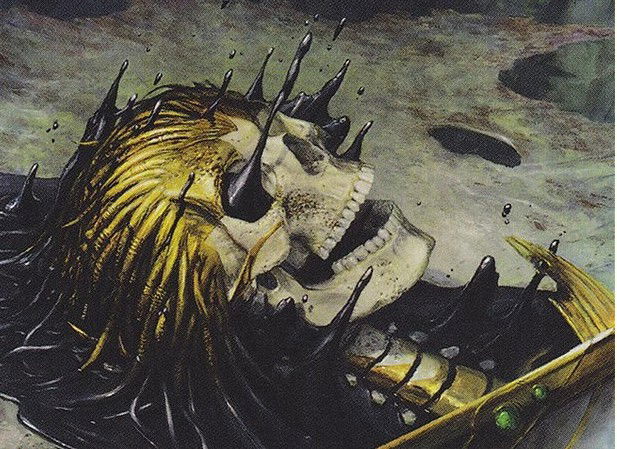
Yawgmoth's Phyrexian Appearance
Being considered the real Father of Machines and ruling god of Old Phyrexia, it is worth mentioning the transformation of the sadistic Yawgmoth, changing from a human with long dark hair, to a bizarre creature.
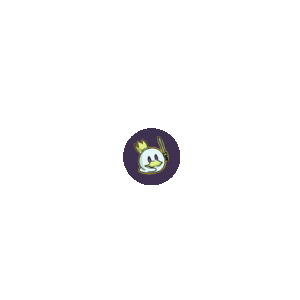
We only have the human version of Yawgmoth as a card available in the game. However, in some cards, like Yawgmoth's Vile Offering, we can get an idea of how he looks like in his Phyrexian version. The giant structure seen in the artwork is assumed to be a manifestation of Yawgmoth, or at least what he looked like. One of the few images we have of the Phyrexian version of Yawgmoth is shown below, taken from an old Magic: The Gathering magazine.
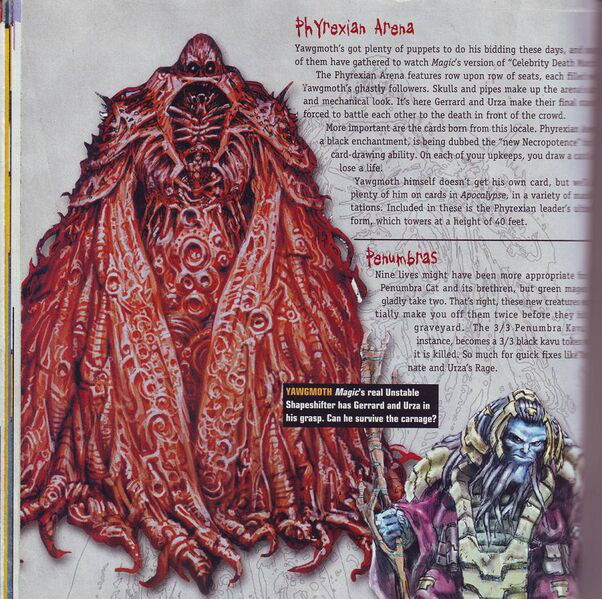
We also have a slight reference to the tyrant in the illustration of Aron, Benalia's Ruin right in the background, where there is a stained-glass window with the image of Yawgmoth. It's not known for sure what this impacts on Magic's history, and many believe it could be a foreshadow or a glimpse of the future that maybe he could return; however, it's purely hypothetical.
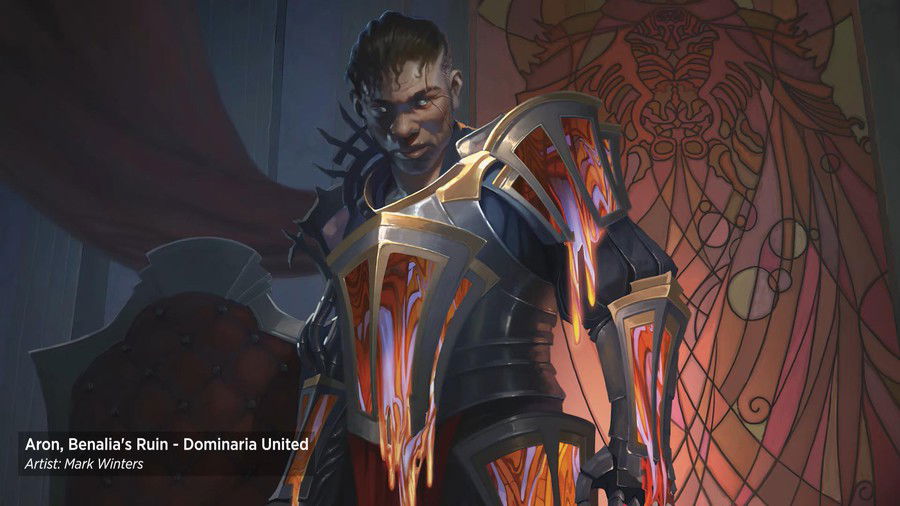
Phyrexia's Name origins
Much of what is said about Phyrexia is very, if not entirely connected with Yawgmoth. In the same period where he manipulated the Phthisis, an ancient planeswalker named Dyfed visited Dominaria to meet Glacian, Powerstone Engineer and ask for his help in unlocking the spark's powers. But Yawgmoth took matters into his own hands and found Dyfed himself, and persuaded her that he would like to create a world where he could experiment at will and then create a perfect society. The planeswalker was interested in the proposal, and looked for a plane so that he could do this.
Ad
The plane she found was a metallic, dark and dubious-looking plane, roughly two or three times the size of the Thran Empire. What little is known of the origin of this plane is that it was created by an unknown planeswalker of an evil nature.
Yawgmoth decided to name the plane Phyrexia, after his ancient hometown. Phyrexia became known as the Hell of Machines or also as The Nine Hells.
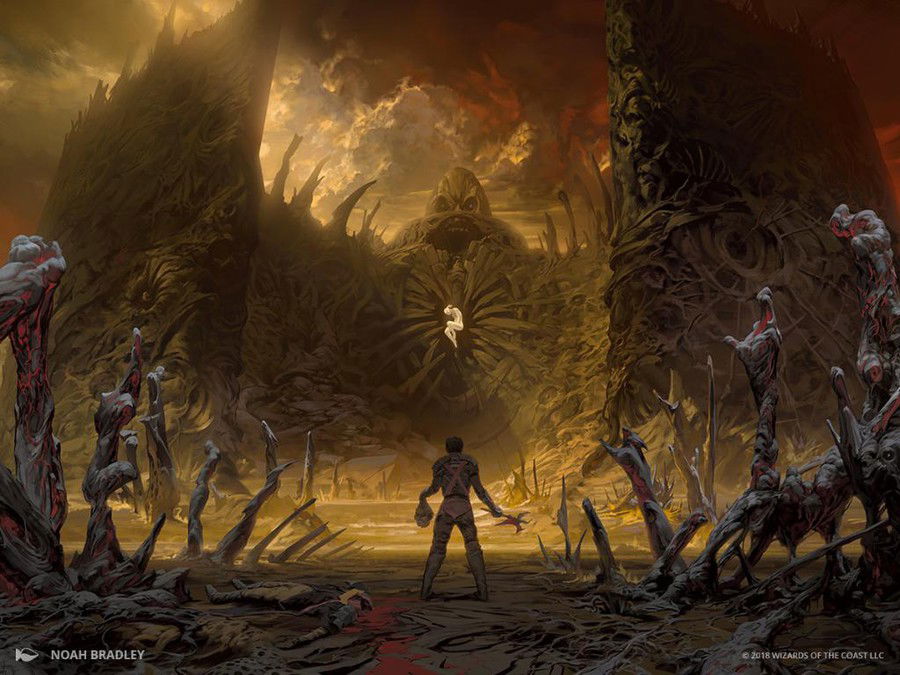
Yawgmoth created Phyrexia intending to create a perfect society that was free from the conflicts and limitations of Dominaria. However, the mage was corrupted by the artificial plane itself, which exuded an evil nature, becoming a grotesque creature that was worshiped as a god by all Phyrexians.
The now Phyrexian turned dictator ruled the plane with a totally twisted culture of submission and loyalty, based on eugenics, force and manipulation.
The Phyrexian Hierarchy
A hallmark of Phyrexians is their hierarchy. The power structure within Phyrexian society was constructed by Yawgmoth, assigning one's role according to each Phyrexian's power and efficiency. Yawgmoth used fear and influence to determine what each Phyrexian should do, since he was the "god" of the plane, the true "Father of Machines".
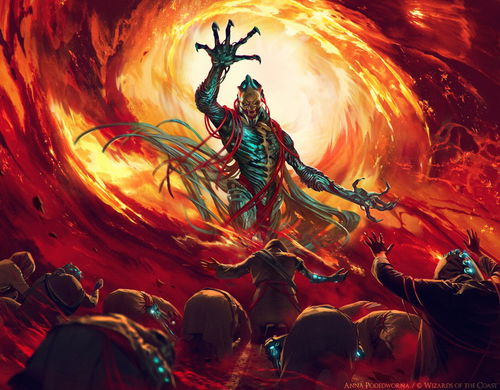
Phyrexians were separated according to their aptitudes, and that included infiltrators, warriors, generals, sleeper agents, and even slaves. The hierarchy remains until the present part of the story, with some slight changes to some of their positions. Xantcha, Sleeper Agent, for example, was one, and she resisted her origin and became a great friend and ally of Urza. This was because sleeper agents didn't know what they were until it was necessary to reveal them, as they were used for reconnaissance missions. It is important to mention that formerly sleeper agents were not completed and were just Phyrexia recognition pawns.
Today, sleeper agents are completed and created by Sheoldred, the Apocalypse, and that includes Ajani, Sleeper Agent. Some, like the ancients, don't know they are compleated, and their metallic parts may simply appear when they are revealed, such as what happened to Ajani when killing Jaya, Fiery Negotiator in Dominaria United.
Evolution in Phyrexians illustrations
At the beginning of our beloved card game, the Phyrexians were portrayed in their art as beings with large fangs, claws, often even resembling insects. Exaggerated elements such as large arms and mechanical parts that looked like metallic bones were also part of their composition.
Below are some examples of old Phyrexians.
Illustrations of old Phyrexians

Over the years, the aesthetics of the Phyrexians have changed significantly. Although many original elements are still present in their illustrations today, such as the mechanical and metallic parts, current illustrations shows Phyrexians with certain uniqueness according to their color: For example, several Phyrexian cards with ivory and crimson aesthetics like Elesh Norn, Grand Cenobite on white cards, or blue creatures with cables emitting glow coming out of themselves reminiscent of Jin-Gitaxias, Core Augur, like Jace, The Perfected Mind.
Ad
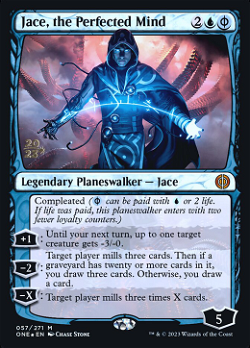
But that's not necessarily a rule, given the wide range of Phyrexians we have today.
Illustrations with New Phyrexians

Compleation of Planeswalkers and Gods
Compleating is the act of becoming a Phyrexian through contact with the Glistening Oil. Phyrexian warriors have their weapons imbued with this Oil to not only defeat opponents, but also bring them to the cause. This process is also known as Phyresis.
As part of the plan to invade the multiverse, it was necessary to compleat planeswalkers to carry out such an act. Jin-Gitaxias, Progress Tyrant, Tezzeret, Betrayer of Flesh and Tameshi, Reality Architect were responsible for finding out how and if it was possible to compleat planeswalkers.
And the experiment was a success, we had the first compleated planeswalker Tamiyo, Compleated Sage. In addition to Tamiyo, other planeswalkers had the same fate: Ajani, Lukka, Nissa, Jace and Vraska, gaining their versions as a planeswalker card with the compleated ability. Tibalt was also compleated, but never got a card of his own, only an appearance in Tyvar's Stand.
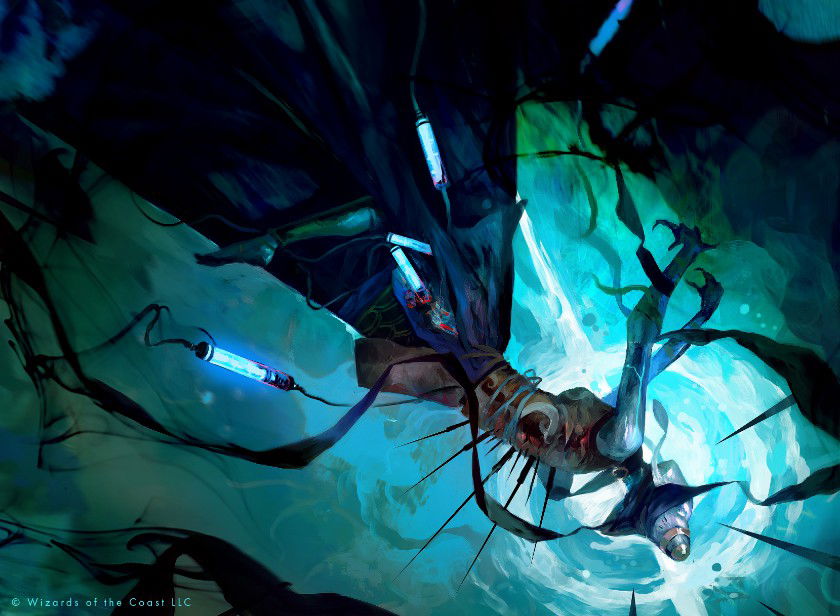
However, along with the previews of the new March of the Machines set, the spoiler for Heliod, the Radiant Dawn was shown, in which he transforms into a Phyrexian. The information was given by Twitter from Wizards itself that gods cannot be compleated directly.
However, if their devotees are compleated, the distorted and corrupted faith will phyrexianize the god itself. This is a fascinating thing, shown in how Ichor behaves through non-direct contamination: completing devotees and making their faith in Phyrexia greater than their faith in the god itself, also compleats the gods.
Taking this into account, we can ask ourselves if there have other forms of Glistening Oil infection in other entities.
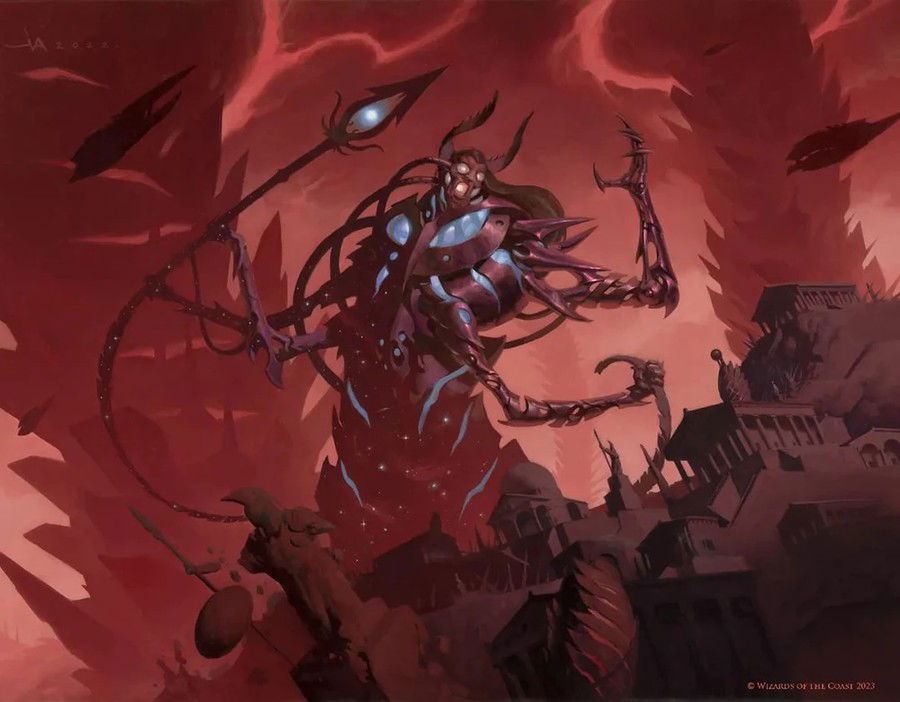
Conclusion
The Phyrexians are an iconic race in Magic, with a complex and fascinating history and how they've evolved over the years. While their visual representations have changed significantly over the years, their essence of a scary, cybernetic nature remains, and so does their devotion to making everything become one.
And you, do you know any other curiosity about the Phyrexians? Share with us!
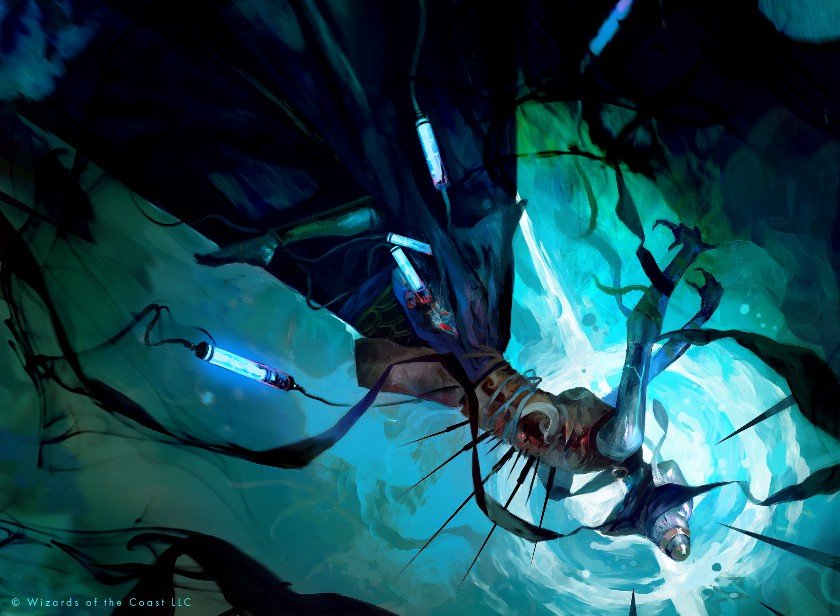




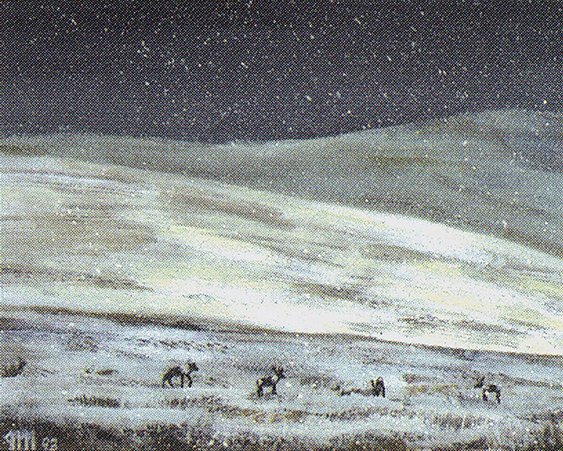



— Comentarios0
Se el primero en comentar